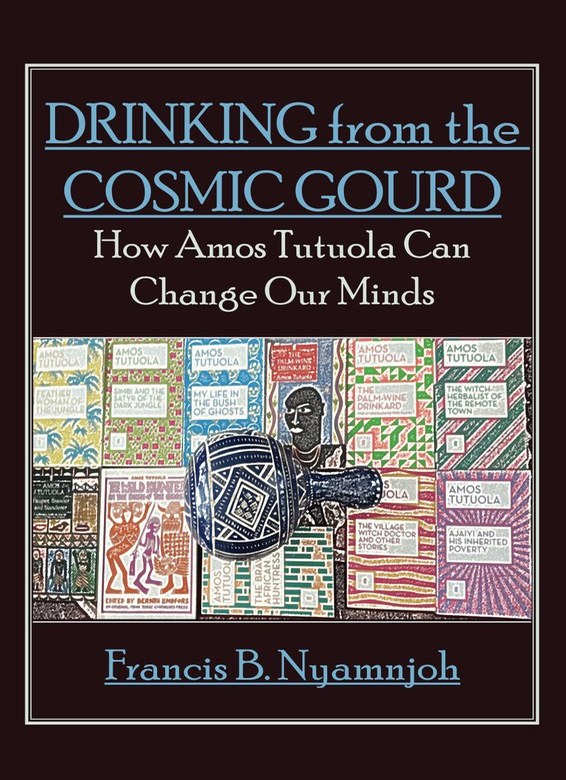written by Francis B. Nyamnjoh
How Amos Tutuola Can Change Our Minds
This book questions colonial and apartheid ideologies on being human and being African, ideologies that continue to shape how research is conceptualised, taught and practised in universities across Africa. Africans immersed in popular traditions of meaning-making are denied the right, by those who police the borders of knowledge, to think and represent their realities in accordance with the civilisations and universes they know best. Often, the ways of life they cherish are labelled and dismissed too eagerly as traditional knowledge by some of the very African intellectual elite they look to for protection. The book makes a case for sidestepped traditions of knowledge. It draws attention to Africa’s possibilities, prospects and emergent capacities for being and becoming in tune with its creativity and imagination. It speaks to the nimble-footed flexible-minded “frontier African” at the crossroads and junctions of encounters, facilitating creative conversations and challenging regressive logics of exclusionary identities. The book uses Amos Tutuola’s stories to question dualistic assumptions about reality and scholarship, and to call for conviviality, interconnections and interdependence between competing knowledge traditions in Africa.
| ISBN | 9789956764655 |
| ePub ISBN | 9789956764433 |
| Pages | 326 |
| Dimensions | 229 x 152mm |
| Published | 2017 |
| Publisher | Langaa RPCIG, Cameroon |
| Formats | Paperback, eBook |





6 comments
“Twenty years after his death, valued by some scholars and writers but discounted by others, Amos Tutuola here finds a compelling advocate. Nyamnjoh reveals a voice that both embraces a range of African communal experience beyond ‘lettered’ reach and challenges commonplace aesthetic and philosophical constructs of African knowledge. And he shows why Tutuola matters, in his own time and now.”
Milton Krieger, Emeritus Professor, Western Washington University
“Francis Nyamnjoh invites us to rethink contemporary cosmopolitanism through strange encounters and marvellous episodes recounted in the stories of Amos Tutuola, a mid-twentieth century Nigerian Yoruba author. This might seem an endeavour more implausible than the tales themselves, but reading will change your mind.”
Richard Fardon, Professor of West African Anthropology, SOAS, University of London
“Tutuola’s tales of frontiers, of incompleteness, of crossroads and conviviality advance profound epistemological perspectives on being and knowledge that we will do well to acknowledge. Nyamnjoh positions Tutuola as a vernacular theorist whose narratives are a fount of hermeneutical and epistemological insight. Much is often made of the idea of vernacular theory but this book is an exemplary instance of putting that idea into practice.”
Harry Garuba, poet and scholar, University of Cape Town
“The book is an important contribution to African intellectual history. It offers a fresh and original interpretation of the life and work of Amos Tutuola, but at the same time marks a substantial advance in the ongoing epistemological debates on the study of Africa…. Based on his concept of the incompleteness of human existence, Nyamnjoh opts for an inclusive, dialogical and interdisciplinary approach. Of special interest is the way in which he relates ethnography to fiction and his focus on the real life experiences of ordinary people. This is a seminal work which no doubt will have a significant impact on current epistemological thinking.”
Professor Bernard Lategan, Founding Director, Stellenbosch Institute for Advanced Study (STIAS)
“Weaving varied ethnographic accounts together with richly textured historical perspectives, Nyamnjoh traces and rehabilitates the checkered career of an unusual and often controversial literary icon.”
Sanya Osha, author of African Postcolonial Modernity: Informal Subjectivities and the Democratic Consensus
Drinking from the Cosmic Gourd by Francis B. Nyamnjoh is a deeply infused treatise that aims to exorcise a hegemonic spell, occasioned by the ready-made epistemologies that have enthralled its consumers and reproducers in a dreamy state since the colonial age. Such exorcism as most are wont to be – is a ritualistic affair, replete with incantations, repetitions and invocations – all aimed at reclaiming the mind and soul of the possessed. The cleansing agent in this expeditious enterprise is a collection of magical stories recounted by Amos Tutuola’s narrators or quest-heroes of which The Palm-wine Drinkard lays a solid foundation. It is in this surreal tale, drawn from Tutuola’s arsenal of Yoruba folktales that we encounter the complete gentleman – who in reality, is a Skull from Dead’s Town and who, determined to win the affection of a lady that has caught his fancy in the world of the living, borrows an assortment of body parts as well as elegant clothing in order to look as dashing as possible. The complete gentleman is – so to speak, a ready-made export from Dead’s Town in his overconfident quest to win the affections of a stunning lady – but his completeness is a temporary illusion because he must give back – once his mission is accomplished – every body part upon his return to the underworld. For more, see: https://www.langaa-rpcig.net/drinking-from-the-cosmic-gourd-a-review-by-jude-fokwang/